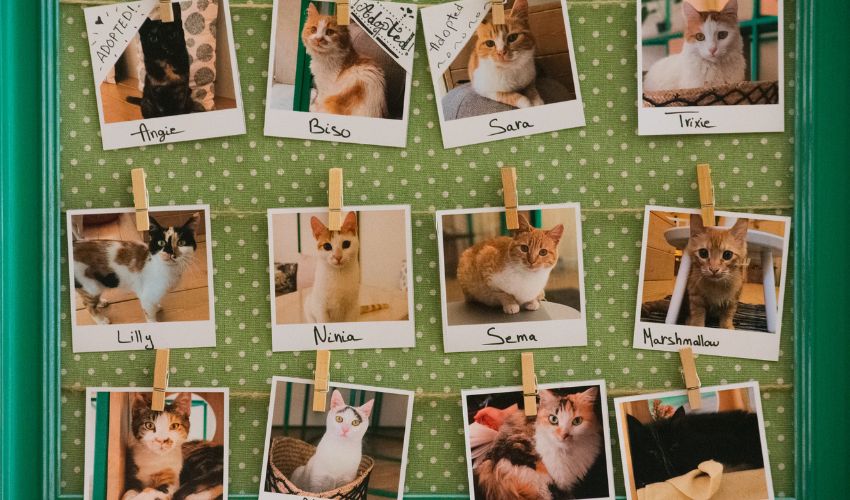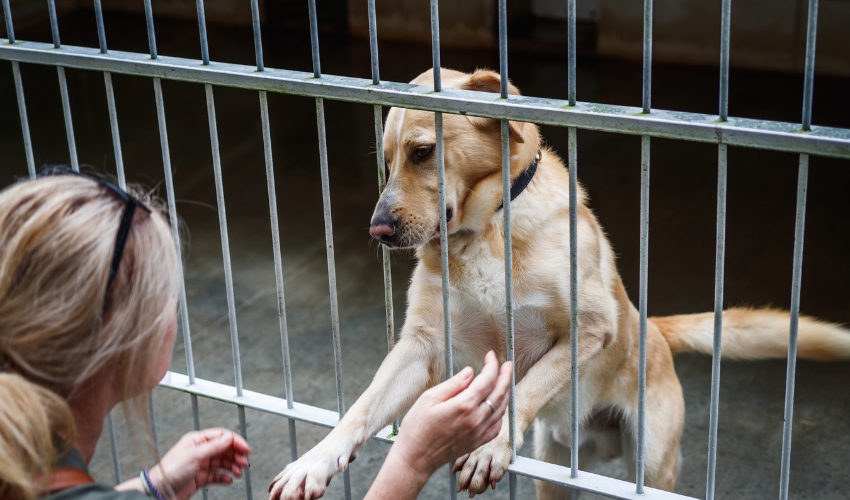Being a foster parent is incredibly rewarding. Not only do you help an otherwise unadoptable animal break out of their shell and transform into a wonderful family companion, but you also open up a space at the shelter for another animal to be saved.
However, it’s important to remember that fostering does have its challenges, and as a soon-to-be foster parent, you have to be 100% sure that you’re prepared to take on the necessary responsibilities. So if you’re considering the idea of fostering but not quite sure if you’re ready, here are 7 signs to help you decide.
1. You have the time.
Fostering an animal is like taking care of a baby, or sometimes, a highly energetic toddler—it’ll take up a lot of your time, and how much will depend on the type of pet you end up fostering and the condition they’re in.

Do you have time to take a dog out for daily walks? Are you okay with setting aside 15 to 30 minutes of your day to play with a cat or bottle-feed a litter of kittens every 2 to 3 hours? Are you fine with needing to attend behavioral training classes or going to the vet for regular checkups?
Each animal will have different needs, so before jumping into fostering, you should have a good sense of how much time you’re willing to spend with a foster pet and the amount of work you’re okay with doing. This will also allow the organization you’ll be working with to match you up with the right foster pet.
2. You have the space.
Space is another thing you need to consider. If you’re planning to foster a dog, make sure that you have enough space to accommodate their size, energy level, and things (kennels, dog bed, toys, etc.). If you’re interested in fostering a litter of puppies, you’ll need to keep them isolated somewhere to keep them out of trouble, so you should have an extra room or at least an indoor playpen.

You should also keep in mind that your foster pet needs to have their own space, especially when they’re still adjusting to their new environment.
3. You have the patience.
Like humans, animals have different personalities, so as a foster parent, you should understand that the experience is going to be different with each pet you foster. Sometimes, you’ll end up with incredibly affectionate and obedient foster pets. Other times, you’ll foster ones that are extremely energetic and difficult to tame.

Before you take the leap into fostering, you need to be sure that whatever your foster pet’s personality ends up being, you’ll remain patient and forgiving as they go through the transformation process.
4. You’re emotionally prepared.
The most common reason why many are hesitant to foster is the fear of becoming too attached to a pet and not being able to let go. It’s completely understandable. You’re taking in an animal, caring for them, getting to know them, establishing a daily routine, only for them to go home to a different family.

It’s not an easy thing to do, but it’s part of being a foster parent. The moment you decide to foster, you’re not just opening your home to an animal, but you’re also opening your heart.
5. Your family is okay with it.
Of course, the decision to foster an animal has to be agreed upon by everyone in the household, especially your non-human family members. The point of fostering an animal is to remove them from the stressful shelter environment so they can relax and learn to adapt to living in a loving home.

So, if a foster pet creates an issue between you and your family, that just defeats the purpose of fostering in the first place. The same thing goes for existing pets. If they don’t do well with other animals, this can cause problems that will not only affect your foster pet but the animals that already live in your home.
6. You know the basics of animal care and training.
You don’t need to be a certified pet expert, but it definitely helps if you’re familiar with the basics of animal care and training. Some animals may need to be housebroken or taught basic obedience skills and other times, you may be asked to administer or apply medications. So start collecting as much information as you can. Do some research or start talking to experienced foster parents and animal professionals before you start fostering.

7. You’re cool with the possibility of an extended fostering period.
Yes, fostering is temporary; a foster pet will most likely be with you for only a short period of time. However, there might be instances where you end up having them longer than planned, and that’s something you need to be prepared for. Make sure that your schedule is flexible enough to accommodate any unforeseen changes in the length of a fostering period. It could stressful for an animal to be transferred over and over again, so once you decide to be a foster parent, it’s important to be ready to make sacrifices whenever necessary.












